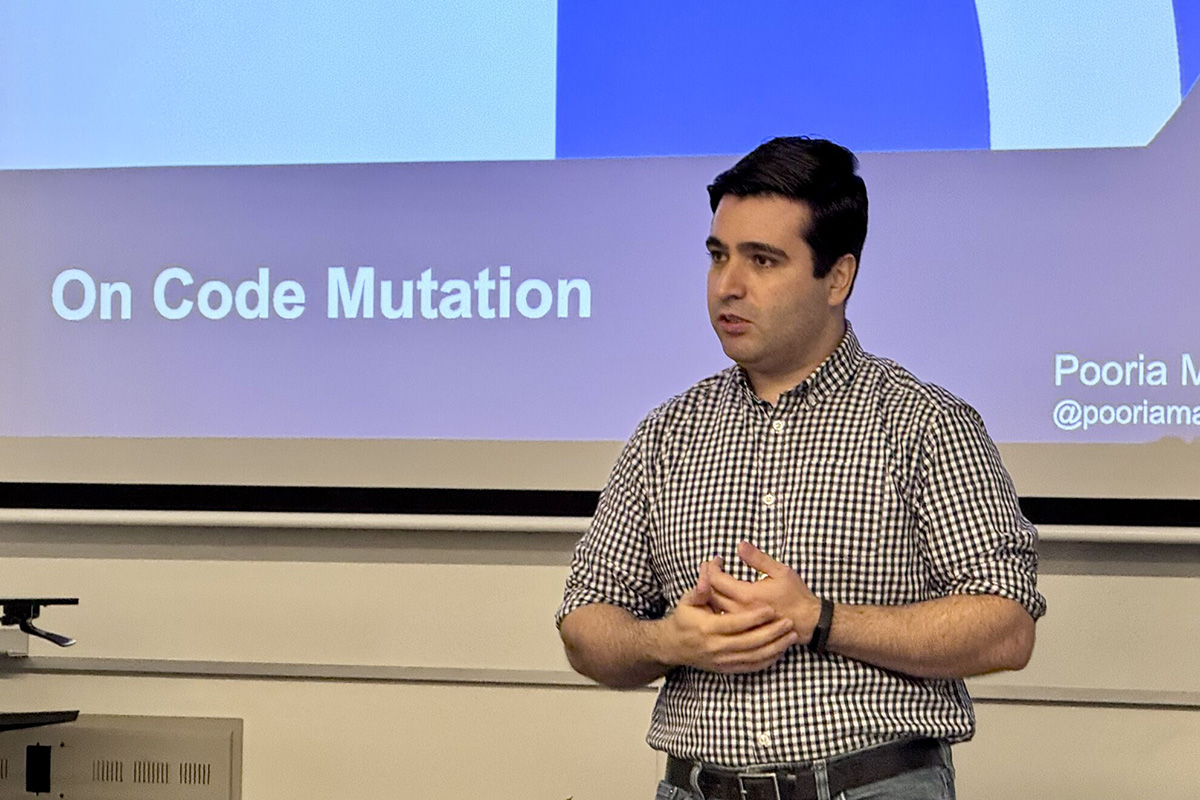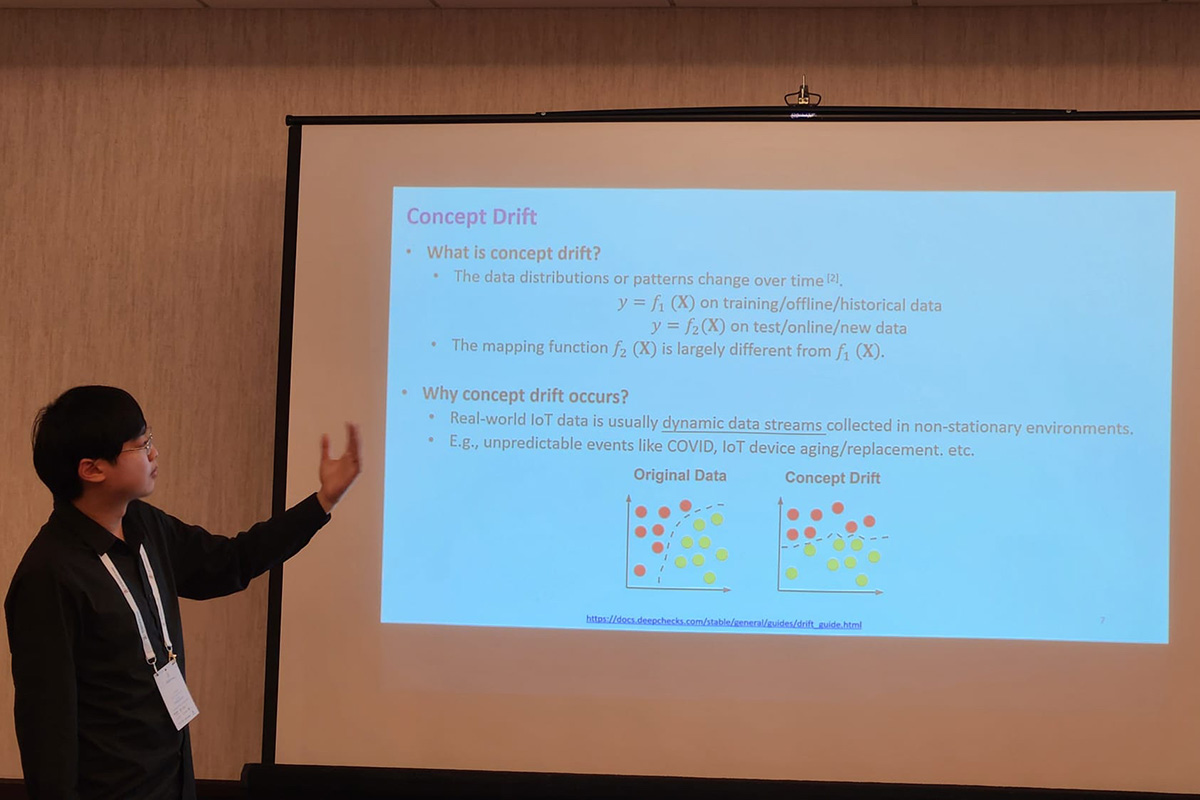Ontario Tech University’s cybersecurity research expertise is in the spotlight after the National Cybersecurity Consortium’s (NCC) announcement of nearly $560,000 in funding over four years for two new research projects at the university.
The Ontario Tech projects supported under this program highlight the university’s important research being conducted through the Institute for Cybersecurity and Resilient Systems, a multi-disciplinary, global centre at the university focusing on cybersecurity research, innovation, teaching, and outreach. By focusing on real-world applications, Ontario Tech is not only advancing the state of cybersecurity research but also contributing to safer, more reliable digital experiences for individuals and organizations alike.
The funded initiatives underscore the university’s role as a leader in promoting technological innovation that aligns with global cybersecurity needs, ensuring resilience and proactive measures against emerging threats. Ontario Tech’s two projects are among 37 across Canada receiving a total of $22.8 million in funding this year under the NCC’s Cyber Security Innovation Network (CSIN) program.
Funded projects:
Enhancing Electric Vehicle Charging Infrastructure Cybersecurity Through Autonomous and Sustainable AI
Funding committed by NCC: $175,294.10
Principal Investigator: Dr. Li Yang, Assistant Professor, Faculty of Business and Information Technology (FBIT), Ontario Tech
Collaborators: Dr. Khalil El-Khatib, Professor, FBIT, Ontario Tech; Dr. Katarina Grolinger, Canada Research Chair in Engineering Applications of Machine Learning, Associate Professor, Department of Electrical and Computer Engineering, Western University; and Automotive Centre of Excellence (ACE), Ontario Tech.
This project addresses the critical need for robust cybersecurity in electric vehicle (EV) charging stations, which are integral to energy and transportation networks. As EV adoption grows, traditional cybersecurity mechanisms, like intrusion detection systems (IDS), struggle to counter evolving cyber threats due to limited adaptability, high energy demands, and centralized architectures. The project will revolutionize EV charging-station security by developing autonomous, optimized, sustainable, and privacy-enhanced IDS using advanced artificial intelligence (AI) technologies, including AutoML, TinyML, and federated learning techniques. These innovations will enable real-time, energy-efficient, and decentralized threat detection, ensuring network stability, protection of consumer data, and support for the expansion of clean energy solutions. By enhancing EV charging-station security, the research bolsters public confidence in EV infrastructure, aids smart city development, and supports Canada’s transition to electric mobility, leading to significant economic, social, and environmental benefits.
Transformative Adversaries: Leveraging Generative Pretrained Transformers for the Development of Next-Generation Metamorphic Malware Engines
Funding committed by NCC: $382,352.94
Principal Investigator: Dr. Pooria Madani, Assistant Professor, FBIT, Ontario Tech
Collaborators: Dr. Jeremy Bradbury, Professor, Faculty of Science; Dr. Khalil El-Khatib, Professor, FBIT, Ontario Tech; and Dr. Natalija Vlajic, Associate Professor, Lassonde School of Engineering, York University.
This project will investigate how generative pre-trained transformer (GPT) models can be used for both offensive and defensive purposes to enhance future cyber defences against the sophisticated and evolving threat of in malicious code mutation. Metamorphic malware is a type of malicious software that rewrites or ‘mutates’ its code structure with each execution or system infection. The ability of metamorphic malware to preserve its malicious functionality while altering its structure makes it both stealthy and highly lethal, posing a significant challenge as it evades traditional detection methods. Recent advancements in AI, particularly GPT models (AI algorithms that teach computers to process information and create new content and ideas like a human brain would) have demonstrated remarkable potential in automating code mutation processes, raising concerns about their misuse for creating more adaptive and evasive malware. This research will help us better understand these capabilities and develop strategies to mitigate the risks, contributing to stronger, more adaptive cybersecurity defenses.
About the National Cybersecurity Consortium
The National Cybersecurity Consortium is a pan-Canadian network that supports the advancement of the Canadian cybersecurity ecosystem through research and development, commercialization, and training by driving collaboration among universities; private industry; not-for-profit organizations; provincial, territorial, and municipal governments; and other key cybersecurity stakeholders.
Funded by Innovation, Science and Economic Development Canada and overseen by the NCC, the Cyber Security Innovation Network program supports research and development projects, commercialization of new technology, and training, upskilling and reskilling efforts led by Canadian organizations within industry, academia, and not-for-profit sectors.
Quotes
“The use of artificial intelligence (AI) in developing advanced malware is a stark example of how AI can be weaponized. To safeguard our future security, we must take action today.”
– Dr. Pooria Madani, Assistant Professor, Faculty of Business and Information Technology, Ontario Tech University
“Our work to enhance the cybersecurity of electrical vehicle charging stations is not just about safeguarding infrastructure; it is also about building trust in and encouraging the adoption of electric transportation, supporting smart cities, and contributing to Canada’s clean energy future.”
– Dr. Li Yang, Assistant Professor, Faculty of Business and Information Technology, Ontario Tech University
Dr. Pooria Madani, Assistant Professor, Faculty of Business and Information Technology, reccently gave a presenation related to his NCC funded project.
Dr. Li Yang, Assistant Professor, Faculty of Business and Information Technology, reccently gave a presentation related to his NCC funded project.



